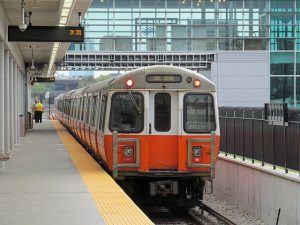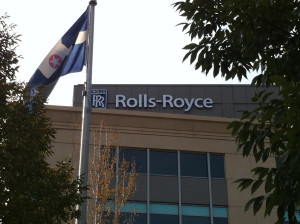I was in Boston at the end of last week for a conference and rode around on Boston transit for a bit. I'd ridden their commuter rail many times, but not much in the city besides the Silver Line bus service to the airport. I noticed that the Red and Orange Line subways both appeared to be very well patronized at rush hour, with some pretty crowded trains. A couple of stops left people unable to get on and having to wait for the next train. Even off-peak had pretty good loads. The frequencies seemed to be decent too. Curious, I went to … [Read more...]
Boston: Whither Somerville?
[ Urbanophile reader Andrew Zimmermann sends us this tale of change in Somerville, a suburban town near Boston - Aaron. ] Urban planners have long cast the artist and gay/lesbian communities as urban pioneers and harbingers of gentrification. We’ve heard the stories of North Halsted in Chicago, the Pearl District in Portland, the South End in Boston and Soho/Chelsea in Manhattan. But, ever since hipsters became part of the sub-culture lexicon, urban experts have blamed gentrification on them. From Williamsburg, Brooklyn to the Mission in San … [Read more...]
The Power of Corporate Logos in Branding Cities
Rolls-Royce Logo on Building in Downtown Indianapolis. Photo courtesy Gary Glover.While driving up and down Boston's Route 128, I've often noticed the various tech company logos that adorn the office buildings - Oracle, SAP, Adobe, etc. Interestingly, most of the ones that catch my eye aren't Boston area based companies. Yet the presence of these blue-chip tech names on the buildings reinforces in my mind that Boston is a tech center. I had a similar thing happen when I was in Indy last fall. Rolls-Royce - which actually manufactures … [Read more...]
New England vs. Midwest Culture
How Physical, Cultural and Political Differences Shape Development and Economic Growth I was recently asked to make a comparison living in New England versus the Midwest-specifically how cultural and political differences impact the economic and physical development framework of the two regions. This is something that I have at least a modest knowledge of, given that I have lived and worked in both areas (Born and raised in Hamden, CT near New Haven, attended college near Boston and now live near Columbus, OH). As a real estate developer and … [Read more...]
Don’t Fly Too Close to the Sun
I was honored to speak at a conference in Milwaukee over the summer called Milwaukee's Future in the Chicago Mega-City. Chicago and Milwaukee are about 90 miles apart on I-94. There's an Amtrak link that makes the journey in about 90 minutes. The two cities have been sprawling such that there's now more or less continuous development along the lakefront between the two cities. Milwaukee has been a challenged city economically and demographically. Chicago has had its own serious problems, but has seen its already muscular core boom in terms of … [Read more...]
David Gunn on Amtrak’s $151bn NEC Plan and How He Rebuilt the Harrisburg Line by Stephen Smith
[ If you didn't read Stephen Smith's two great recent pieces on why US transit costs are so high over at Bloomberg, you should check them out now. See: US Taxpayers Are Gouged on Transit Costs and Labor Rules Snarl US Commuter Trains. He also writes over at Forbes and the great blog Market Urbanism, which takes a free market view of boosting cities. He followed up on these pieces with this one talking about Amtrak. I hope you enjoy - Aaron. ] First order of business: I wrote two articles for Bloomberg View (the opinion counterpart to … [Read more...]
The Importance of Social Structures to Urban Success
There seems to be a popular belief that what it takes to create an industry cluster in bioscience or whatever is to pair research with commerce. That is, to find an academic institution doing cutting edge research, and connect it with venture capital and entrepreneurs to start companies to commercialize it. Soon enough, you have a "cluster" of businesses that takes off like a rocket. This is the perceived Silicon Valley model, and no company epitomizes it more than Google, which was started by two Stanford students to commercialize their … [Read more...]

